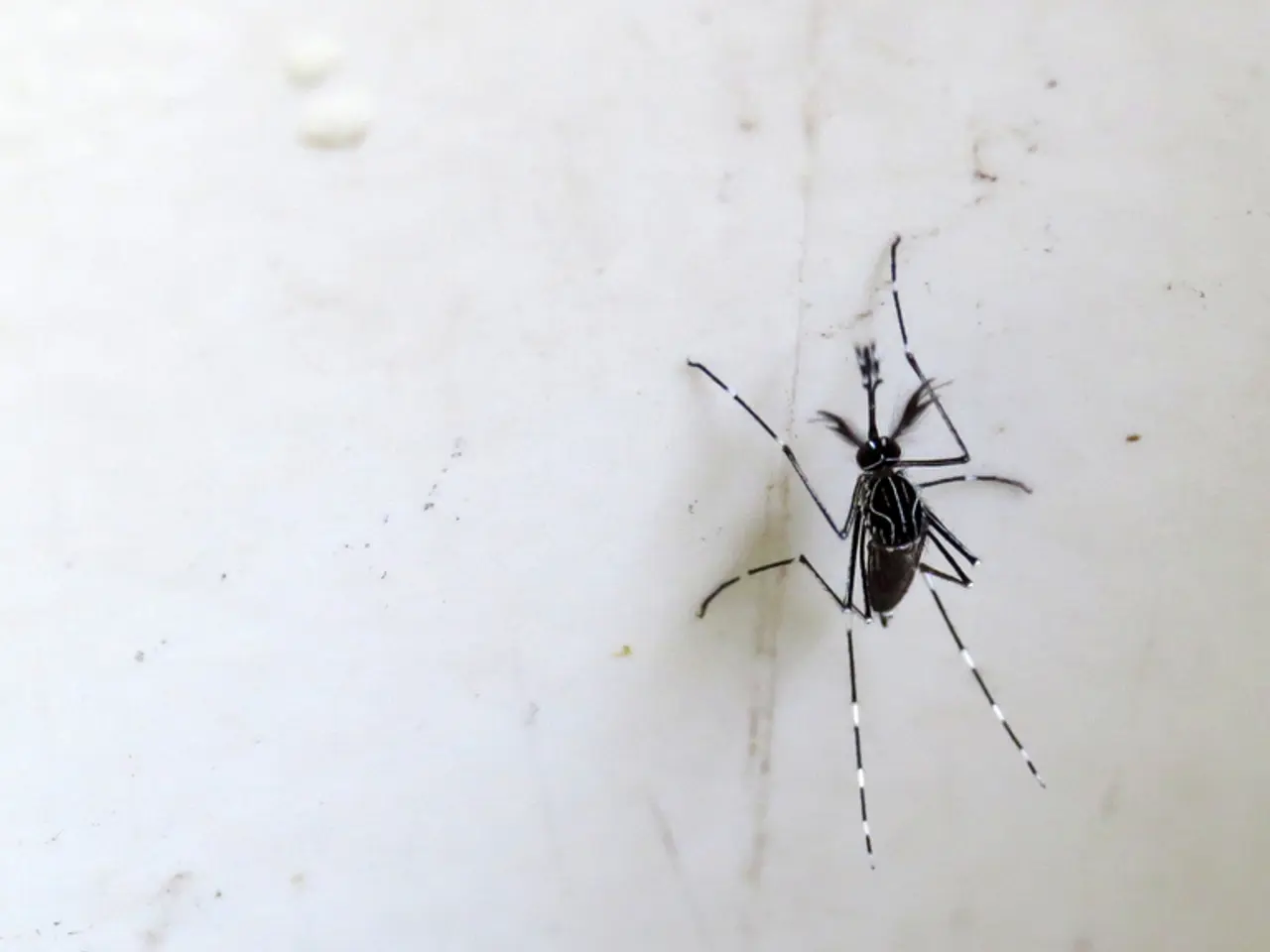European health insurance system underscored as essential necessity
In North Rhine-Westphalia, the Asian Tiger Mosquito - a small, black and white insect with a distinctive white stripe over its head and back - has been found in a few, locally limited areas, including Bonn, Kerpen, and Brühl. This species, known for its striped hind legs, can transmit viruses such as West Nile, dengue, Zika, and chikungunya.
The spread of the Asian Tiger Mosquito in the region is attributed to favourable climatic conditions along the Rhine, international travel, and freight traffic. While no known cases of virus transmission to humans have been reported in North Rhine-Westphalia, a single case was reported in Euskirchen in 2021, with no further findings made there.
To help contain the Asian Tiger Mosquito population, citizens in the mosquito hotspots of Kerpen-Bǘrgen and Brühl-Ost in the Rhein-Erft district are asked to take action. Here's how you can help:
- Eliminate standing water: Mosquitoes breed in standing water, so it's essential to remove any sources around homes and gardens, such as in flower pots, buckets, gutters, and other containers.
- Regularly empty and clean water-holding containers: Regularly emptying and cleaning water-holding containers, like birdbaths and paddling pools, is crucial in these hotspots.
- Use mosquito screens: Installing mosquito screens on windows and doors can prevent these insects from entering your home.
- Keep garden ponds treated or stocked with fish: Fish that eat mosquito larvae can help control the population in garden ponds.
- Wear protective clothing and use insect repellent: During peak mosquito activity times, wearing protective clothing and using insect repellent can provide an extra layer of protection.
- Report sightings: If you spot an Asian Tiger Mosquito, report it to local health or environmental authorities to support monitoring and control efforts.
In Cologne, where no Asian Tiger Mosquito has been detected so far, the city administration has asked residents to be vigilant. Residents can send suspicious mosquitoes for identification to the nationwide project "Mosquito Atlas" or send a photo of the insect by email to [email protected].
By following these measures, citizens can help reduce breeding sites and lower the mosquito population, thus limiting the spread of the invasive species and associated diseases like dengue fever. For region-specific campaigns or regulations, local government websites or public health offices in North Rhine-Westphalia would be appropriate sources to consult.
- In addition to the region-specific measures, efforts in science and health-and-wellness should focus on understanding the asymptomatic spread of viruses like West Nile, dengue, Zika, and chikungunya, transmitted by the Asian Tiger Mosquito.
- To ensures the long-term health and wellness of communities, environmental-science initiatives should investigate suitable strategies for mosquito control in both urban and natural environments, considering the impact on local biodiversity and ecosystems.




